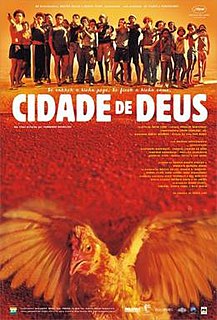A list of films produced in the Cinema of Portugal ordered by year of release in the 1960s. For an alphabetical list of Portuguese films see Category:Portuguese films
A list of films produced in the Cinema of Portugal ordered by year of release in the 1960s. For an alphabetical list of Portuguese films see Category:Portuguese films
| Title | Director | Cast | Genre | Notes | ||
|---|---|---|---|---|---|---|
| 1960 | ||||||
| 1961 | ||||||
| 1962 | ||||||
| Dom Roberto | José Ernesto de Sousa | |||||
| O Milionário | Perdigão Queiroga | |||||
| Retalhos da Vida de Um Médico | Jorge Brum do Canto | Entered into the 13th Berlin International Film Festival | ||||
| 1963 | ||||||
| Rite of Spring | Manoel de Oliveira | |||||
| Os Verdes Anos (The Green Years) | Paulo Rocha | |||||
| 1964 | ||||||
| Belarmino | Fernando Lopes | Biographical documentary | ||||
| Uma Hora de Amor | Augusto Fraga | |||||
| 1965 | ||||||
| Vinte e Nove Irmãos | Augusto Fraga | |||||
| 1966 | ||||||
| A Voz do Sangue | Augusto Fraga | |||||
| 1967 | ||||||
| Sete Balas Para Selma | António de Macedo | |||||
| 1968 | ||||||
| A Cruz de Ferro | Jorge Brum do Canto | |||||
| 1969 | ||||||
| Bonança & C.a | Pedro Martins | |||||

City of God is a 2002 Brazilian epic crime film co-directed by Fernando Meirelles and Kátia Lund, released in its home country in 2002 and worldwide in 2003. Bráulio Mantovani adapted the story from the 1997 novel of the same name written by Paulo Lins, but the plot is loosely based on real events. It depicts the growth of organized crime in the Cidade de Deus suburb of Rio de Janeiro, between the end of the 1960s and the beginning of the 1980s, with the film's closure depicting the war between the drug dealer Li'l Zé and vigilante-turned-criminal Knockout Ned. The tagline is "If you run, the beast catches you; if you stay, the beast eats you."

The Mission is a 1986 British period drama film about the experiences of a Jesuit missionary in 18th-century South America. Directed by Roland Joffé and written by Robert Bolt, the film stars Robert De Niro, Jeremy Irons, Ray McAnally, Aidan Quinn, Cherie Lunghi, and Liam Neeson.

Glauber de Andrade Rocha, better known as Glauber Rocha, was a Brazilian film director, actor and screenwriter. He was one of the most influential moviemakers of Brazilian cinema and a key figure of Cinema Novo. His films Black God, White Devil and Entranced Earth are often considered to be two of the greatest achievements in Brazilian cinematic history, being selected by Abraccine as, respectively, the second and fifth best Brazilian films of all-time. Rocha also the distinction of having the most films on Abraccine's list: 5 films.
This is an index of lists of films by year, awards, countries of origin and genre among other factors.

The Cinema of Portugal started with the birth of the medium in the late 19th century. Cinema was introduced in Portugal in 1896 with the screening of foreign films and the first Portuguese film was Saída do Pessoal Operário da Fábrica Confiança, made in the same year. The first movie theater opened in 1904 and the first scripted Portuguese film was O Rapto de Uma Actriz (1907). The first all-talking sound film, A Severa, was made in 1931. Starting in 1933, with A Canção de Lisboa, the Golden Age would last the next two decades, with films such as O Pátio das Cantigas (1942) and A Menina da Rádio (1944). Aniki-Bóbó (1942), Manoel de Oliveira's first feature film, marked a milestone, with a realist style predating Italian neorealism by a few years. In the 1950s the industry stagnated. The early 1960s saw the birth of the Cinema Novo movement, showing realism in film, in the vein of Italian neorealism and the French New Wave, with films like Dom Roberto (1962) and Os Verdes Anos (1963). The movement became particularly relevant after the Carnation Revolution of 1974. In 1989, João César Monteiro's Recordações da Casa Amarela won the Silver Lion at the Venice Film Festival and in 2009, João Salaviza's Arena won the Short Film Palme d'Or at the Cannes Film Festival. Several other Portuguese films have been in competition for major film awards like the Palme d'Or and the Golden Bear. João Sete Sete (2006) was the first Portuguese animated feature film. Portuguese cinema is significantly supported by the State, with the government's Instituto do Cinema e do Audiovisual giving films financial support.

Orfeu is a 1999 Brazilian drama film directed by Carlos Diegues, based on the play Orfeu da Conceição by Vinicius de Moraes. It retells the Greek legend of Orpheus and Eurydice, setting it in the modern context of Rio de Janeiro during Carnival. Toni Garrido stars as Orfeu, Patrícia França as Eurídice and Murilo Benício as Lucinho.
A list of films produced in Brazil ordered by year and split onto separate pages by decade. For an alphabetical list of films currently on Wikipedia see Category:Brazilian films
Events in the year 2011 in Portugal.
Events in the year 2013 in Portugal.

Cinemateca Portuguesa is a film archive located in Lisboa. It was established in 1948.